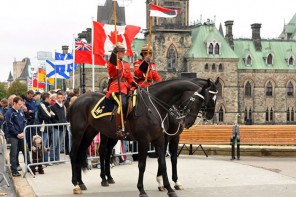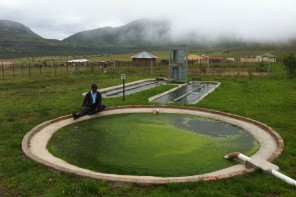Environmentally-friendly Long Lasting Plastic-packed Foodstuffs
Article by: Janine Erasmus
South African innovation is once more about to dazzle the world. A new technology developed in South Africa by the Council for Scientific and Industrial Research (CSIR) promises to extend shelf life for plastic-packed foodstuffs and beverages by up to 40 times.
Known as the Enviroclear barrier coating technology, the product has been eight years in the research and development phase, and is now ready for further commercialisation.
It extends the shelf life of food and liquid products by reducing the movement of oxygen into and carbon dioxide out of the plastic barrier. Enviroclear is applied to the outside of the package and does not in any way affect the product within.
Equally importantly, the CSIR has developed Enviroclear to be superior with regard to recycling and sustainability than current barrier technologies. It can be recycled in a dedicated facility or as a component of the normal recycling stream without any risk of contamination. It can also be cleanly incinerated.
Proven Advantages
Enviroclear is currently licensed to Ontario-based Container Corporation of Canada, which supplies the bottle blowing and application equipment. Container Corp produces a range of plastic and corrugated paper packaging products.
The Canadian company cites proven cost effectiveness, hot-filling at temperatures up to 100ºC, greater impact strength, and superior moisture barrier as just a few of the advantages that Enviroclear has over a number of other conventional packaging materials such as glass, polyvinyl chloride or polystyrene.
Container Corp CEO Norman Gottlieb believes that Enviroclear will allow a treated bottle to replace a 350ml can, with a shelf life of at least one year. “This is probably more than the soft drink bottlers require,” remarked Gottlieb. A 2-litre bottle will have an even longer shelf life.
CSIR Polymers & Bioceramics manager Dr Sean Moolman, who headed the research team, said that the technology was licensed to Container Corp in 2006. At the time, he said, local companies were not prepared to take Enviroclear to the commercialisation stage.
“Since then, local interest has been stimulated and as the licence to CCC is not a globally-exclusive one, we could see the technology manufactured in SA in future.”
FDA Approval
The CSIR announced in March 2009 that Enviroclear has undergone and successfully passed the US Food and Drug Administration´s (FDA) Food Contact Notification process.
This internationally recognised quality system is designed specifically for packaging or processing materials that come into direct or indirect contact with foodstuffs or beverages. These materials may include coatings, plastics, paper, antimicrobials, antioxidants and colourants.
The system is considered to be as rigorous as the food additive petition process. When a company wishes to obtain clearance for a new product, it must first file a food contact notification with the FDA, along with all the necessary toxicology and environmental data. It must then wait 120 days for the notification to come into effect, while the FDA scrutinises the submission carefully in the meantime.
Food contact notifications are also applicable to products that come into contact with toys or medical devices, for instance. Once a product has met with FDA approval, consumers can rest assured that it is completely safe for commercial use.
Because it is an external coating, Enviroclear has won FDA approval in the category for indirect contact. In addition, all chemical components in the coating are approved by the public health body for food contact.
Now, with the all-important certification in hand, the CSIR can continue to develop and market the technology. International commercialisation is the next step, and the research organisation is also working on an inside coating.
Versatile Product
Enviroclear can be applied to many types of plastic and therefore offers an attractive packaging alternative for products that remain in their original enclosure for a while, such as coffee powder and long-life milk and juice. It can also be applied successfully to carbonated soft drink and beer bottles, as well as plastic closures.
Various methods of application are available, including dip coating, flow coating, or spraying. The technology also provides for the addition of colours.
Because Enviroclear is more impermeable to oxygen than many other products, this means that oxygen-sensitive products, which have been traditionally sealed in glass or metal cans, can now be safely packaged in plastic. This results in a beneficial impact on both the environment and the bottom line.
Application of the coating will not require a change in the resin identification code underneath the bottle. This is the number from one to seven, surrounded by arrows, which identifies the type of polymer used to make the bottle. The resin identification code helps consumers choose the correct recycling option, resulting in a recycled product that is as homogeneous as possible.
Most plastic packaging is made from one of six polymers (polyethylene terephthalate, high density polyethylene, polyvinyl chloride, low density polyethylene, polypropylene, or polystyrene). The seventh category – “other” – is for products made from a polymer other than one of the usual six, or from a combination of polymers.





